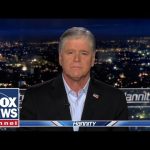**Minnesota Governor Caught in a Timing Tangle over Historical Trip to China**
In today’s fast-paced world of politics, timing is everything—especially when it comes to recounting personal history. Recently, Minnesota Governor Tim Walz found himself embroiled in a peculiar situation regarding his past travels to Asia during the landmark Tiananmen Square protests of 1989. While discussing his leadership qualities, he mentioned being in Hong Kong during the protests, only to be met with the startling reminder that he had not actually traveled to Asia until August of that year. Talk about needing a calendar and a good story editor!
The governor, known for his passionate commitment to his community and years of service, sought to explain the discrepancy. He painted a picture of his humble beginnings as a 17-year-old in a small Nebraska town of just 400 people, cycling with friends and working on family farms. You might think that sounds like the start of a wholesome American novel, complete with warm glow and a corny soundtrack. However, as charming as that may sound, it led to a significant moment that left some scratching their heads over his claims and credentials.
Even though Governor Walz acknowledged that he misspoke about the timing of his trip, he highlighted his dedicated journey of public service—starting from a teacher who used the G.I. Bill to further his education, to a National Guardsman who actively participated in the community. His mantra was clear: he has always aimed to be there for the people, and the lessons he learned from his travels abroad helped shape his values and leadership style, whether they wanted to get on board or not.
During his time in Congress, he emphasized his bipartisan efforts on critical issues such as farm bills and veterans benefits. It seemed as if he was trying to reassure voters that he’s their guy—the people’s champion, riding to the rescue on a trusty steed of experience. However, facing this new scrutiny on his past, the governor reaffirmed his commitment to understanding global dynamics and how they affect the community back home. If it sounds a bit convoluted, that’s because politics often is.
In trying to connect past experiences to his present leadership, Walz inadvertently sparked a conversation about the nature of political credibility and the importance of accurate representation. Whether you like him or not, the governor’s focus on education and community engagement does echo a sentiment many Americans appreciate. After all, navigating the complexities of governance while remaining grounded in one’s community is no easy feat. Yet, one has to wonder—will a mix-up over dates throw a wrench in his political gears, or is this merely a bump in the road on a long journey towards making Minnesota a better place for all?
As the fallout continues from this politically charged episode, one thing remains clear: personal history matters in politics. Whether it’s the timeline of a trip to Hong Kong or the stories that shape leadership identity, every detail counts. Minnesotans are left wondering about the implications of this discrepancy, and perhaps, they will expect a little more precision in the story of their governor’s journey. Who’s ready for another adventure in the ever-entertaining realm of political storytelling?




